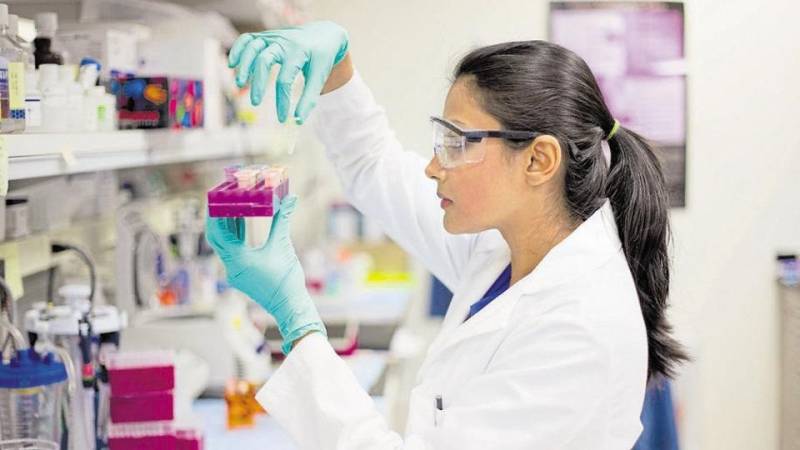Schemes for women scientists underutilized in Andhra Pradesh
By Dheeshma
Hyderabad: To offer various career opportunities to women scientists and to address relocation issues, the Central government had started the "women scientist scheme" (WOS) under Knowledge Involvement in Research Advancement through Nurturing (KIRAN) in 2014. According to the ministry of health and family welfare, so far Rs 381.45 crore has been allotted by the government towards the scheme. However, the number of women scientists who have benefitted under different programmes of KIRAN during the last three years is very few. This shows the government's inadequacy in promoting schemes and making them accessible to the general public.
According to the ministry of science and technology, between 2017 and 2020, only 75 women scientists have benefited from the scheme in Telangana. In 2017, 32 women benefited from the scheme, but in 2018 it was only 31. However, the number reduced to 12 in 2019. In Andhra, only one woman scientist benefited from the KIRAN scheme in 2017.
While talking about the low number of scientists who have benefited from the schemes Mr B.V Subhareddy, chief scientist of IACT, told NewsMeter, “In Telangana, the advantage is you have got quite a good number of Central institutes like ICE, IACT, NIT, IIT, and IIIT that promotes research and higher education. But that’s not the scenario in Andhra. AP has very few Central institutes and that too it was only recently started. There are not enough institutes to do research. The institutes there will take another five to 10 years to be fully established. Then the number of applicants for these schemes will also go up. Without infrastructure, neither a woman scientist nor any other scholar can grow.”
The scheme provides career opportunities, including fellowships, to unemployed women scientists and technologists. It especially focuses on those who took a break from their career. Speaking about other constraints which women scientists face while trying to avail various fellowships offered by the government Shankunthala Kasaragadda, vice-president for WeHub Telangana, told NewsMeter that though the schemes help women who took a break to make a comeback, many are not aware of such schemes.
The government invests a lot to promote its propaganda programs but not for such schemes. These schemes must be given wider publicity, she said. “Women don’t know there are schemes to help them. It would be better if education schemes are promoted like other community schemes.
The schemes should be advertised on newspaper columns. Colleges and research institutes should be notified and the guidelines need to be put up on their notice boards,” she said.
She further said that many applications are rejected midway. Women scientists often fail to furnish the mandate requirement due to a lack of awareness about the scheme. “While applying they only look at the application form and the scheme. But most of the time they fail to furnish the recommended documents. So when it comes to the applicability of these schemes, very few women can avail of the benefits. Also, they need to be clear about their plans. They must know where they are going after this fellowship. Departments usually offer fellowship only if they are convinced that the candidate will contribute something to the government after the completion of the fellowship. So women technologist sitting in front of the panel needs to be well aware of their future." Also, for women who have ideas with great potential the amount offered might not be sufficient, she said.
Until 31 December 2019, a total of 1,391 women benefited from the scheme across the country. Maharashtra has the highest number of women scientists who have benefited from the scheme (160), closely followed by Delhi (147).
There are three major components of WOS, namely, i) Women Scientists Scheme-A (WOS-A) for conducting research in basic and applied sciences, ii) Women Scientists Scheme-B (WOS-B) for research projects that entail S&T interventions for societal benefit and iii) Women Scientists Scheme-C (WOS-C) that enables them to become Intellectual Property Rights (IPR) professional after a one-year training. Around 2,200 women scientists have been supported under the three WOS schemes in the past five years, including the current year.
Describing the process a candidate has to go through Mr Subhareddy said, “According to the scheme a candidate needs to have a minimum of two-years break soon after their academics in order to be eligible for the scheme. Applicants need to submit a proposal first. Then the selected candidates must present their proposal in front of a panel in Delhi. Also, the fellowship is available only for three years. Candidates must reapply after that. This can substantially bring down the number of applicants.”